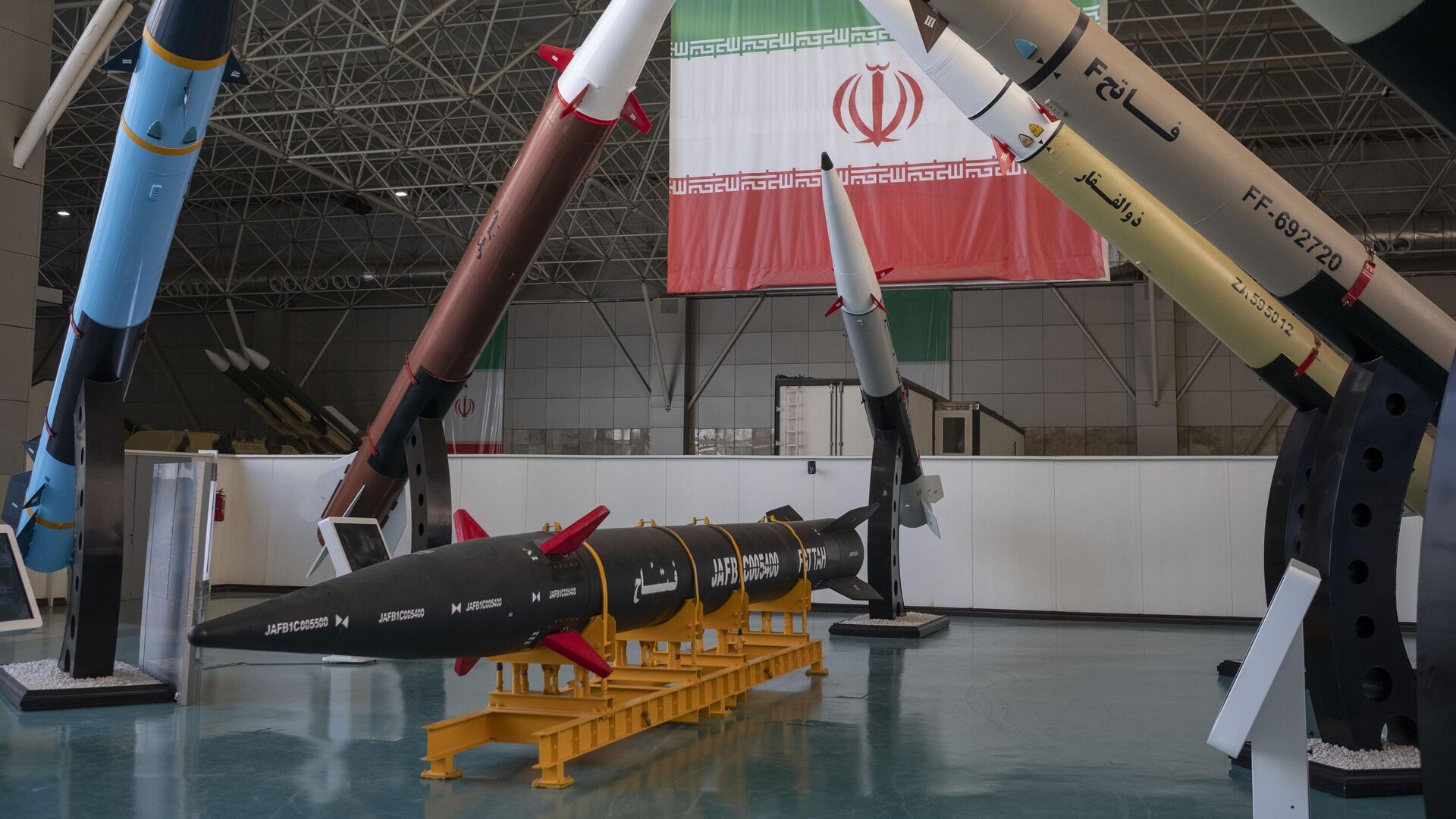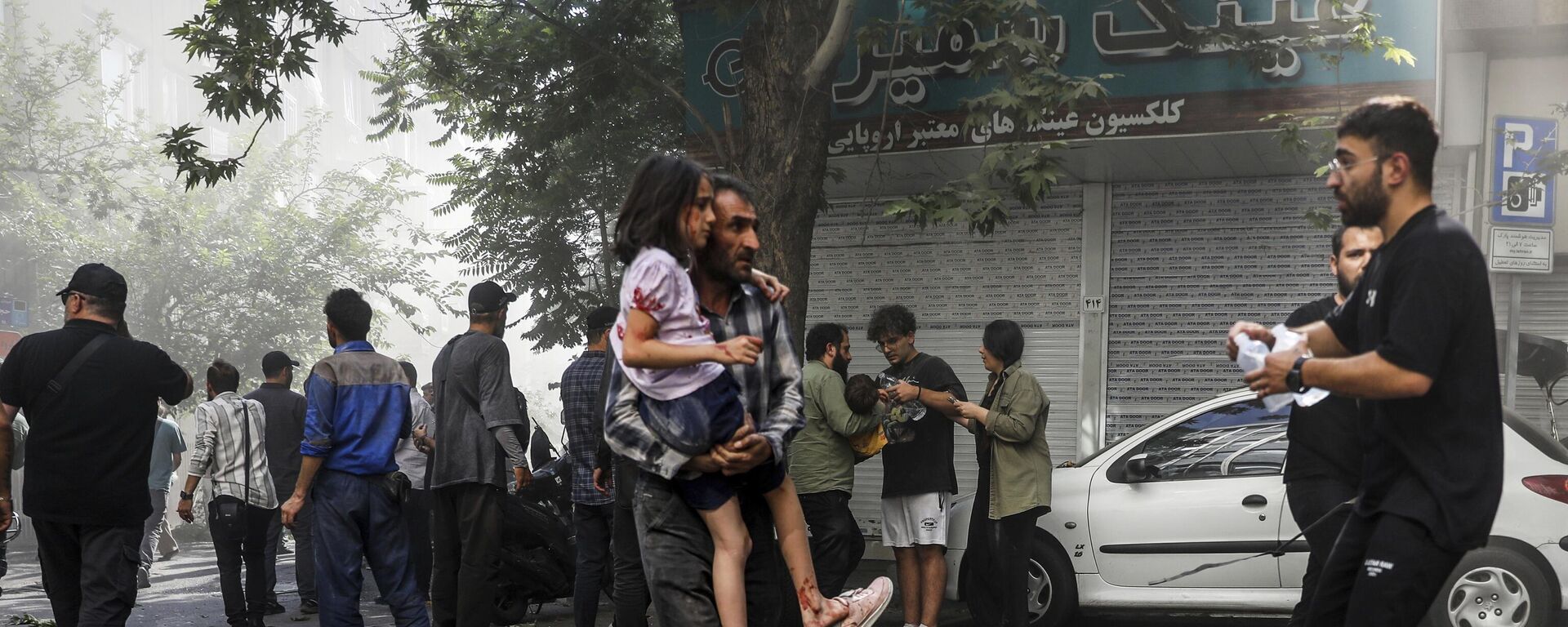https://sputniknews.in/20250618/can-fattah-1-irans-hypersonic-missile-overwhelm-israels-air-defences-9312934.html
Can Iran's Hypersonic Fattah-1 Missile Overwhelm Israeli Air Defences?
Can Iran's Hypersonic Fattah-1 Missile Overwhelm Israeli Air Defences?
Sputnik India
Following Israel's "preemptive" strikes on Iran last Friday, the two regional powerhouses have been trading missiles and armed drones on a near-hourly basis... 18.06.2025, Sputnik India
2025-06-18T20:36+0530
2025-06-18T20:36+0530
2025-06-18T20:36+0530
sputnik opinion
israel
iran
india
islamic revolutionary guard corps (irgc)
islamic revolution guards corps (irgc)
tehran
iron dome system
missiles
missile strike
https://cdn1.img.sputniknews.in/img/07e9/06/12/9315164_0:364:2993:2047_1920x0_80_0_0_7e6fe1c51c613084e0a48d4532aea7e3.jpg
Iran's Islamic Revolutionary Guard Corps (IRGC) said that Tehran used the Fattah-1 missiles to against targets in Israel on Wednesday.Notably, Iran's decision to put Fattah-1 missiles into service came after Supreme Leader, Ayatollah Ali Khamenei's strong stance regarding the conflict and Israel government.Multiple reports indicate that Iran's missiles have breached Israel’s air defense systems during recent exchanges, with some strikes targeting central areas including Tel Aviv.Israel’s air defense consists of several systems including the Iron Dome, David’s Sling, Arrow, and the US Navy’s Aegis, Yelwe said. These systems have intercepted a significant number of missiles and drones in recent retaliatory exchanges, he said. Moreover, no air defense system can offer 100% protection against aerial threats, he added.However, missiles with high speed and maneuverability—such as supersonic and hypersonic weapons—can penetrate even the most sophisticated air defense systems. In particular, weapons like the BrahMos and Iran's Fattah are specifically designed to strike high-value, strategically important ground targets, Yelwe stressed.In the recent confrontation, Iran may have opted to use the Fattah hypersonic missile precisely to overcome Israel's multilayered air defense, as the majority of its conventional ballistic missiles were intercepted by both Israeli and US defense systems deployed in the region, the strategic affairs pundit highlighted.In Israel’s case, its air defense system is considered highly developed and has also been supported by additional US systems such as THAAD, SM-3, and Patriot, which are currently deployed in the region, Yelwe noted. He suggested that after absorbing the first strike of the Fattah hypersonic missile, Israel will restructure its air defense tactics to counter future hypersonic strikes, he suggested.
https://sputniknews.in/20250618/nuclear-threat-in-middle-east-not-hypothetical-facilities-hit---russian-foreign-ministry-9310735.html
israel
iran
india
tehran
middle east
persian gulf (arabian gulf)
gulf countries
Sputnik India
feedback.hindi@sputniknews.com
+74956456601
MIA „Rossiya Segodnya“
2025
Pawan Atri
https://cdn1.img.sputniknews.in/img/07e6/0c/13/139630_147:0:831:684_100x100_80_0_0_8fa2b25903e7787fe6a2698552c167df.png
Pawan Atri
https://cdn1.img.sputniknews.in/img/07e6/0c/13/139630_147:0:831:684_100x100_80_0_0_8fa2b25903e7787fe6a2698552c167df.png
News
en_IN
Sputnik India
feedback.hindi@sputniknews.com
+74956456601
MIA „Rossiya Segodnya“
Sputnik India
feedback.hindi@sputniknews.com
+74956456601
MIA „Rossiya Segodnya“
Pawan Atri
https://cdn1.img.sputniknews.in/img/07e6/0c/13/139630_147:0:831:684_100x100_80_0_0_8fa2b25903e7787fe6a2698552c167df.png
israel, iran, india, islamic revolutionary guard corps (irgc), islamic revolution guards corps (irgc), tehran, iron dome system, missiles, missile strike, hypersonic missile, middle east, persian gulf (arabian gulf), gulf countries
israel, iran, india, islamic revolutionary guard corps (irgc), islamic revolution guards corps (irgc), tehran, iron dome system, missiles, missile strike, hypersonic missile, middle east, persian gulf (arabian gulf), gulf countries
Can Iran's Hypersonic Fattah-1 Missile Overwhelm Israeli Air Defences?
Following Israel's "preemptive" strikes on Iran last Friday, the two regional powerhouses have been trading missiles and armed drones on a near-hourly basis, with the conflict on the verge of being transformed into a full-blown war.
Iran's Islamic Revolutionary Guard Corps (IRGC) said that Tehran used the Fattah-1 missiles to against targets in Israel on Wednesday.
"The 11th wave of the proud Operation Honest Promise 3 using Fattah-1 missiles" was conducted against Israel, the IRGC's statement shared on state television stated.
Notably, Iran's decision to put Fattah-1 missiles into service came after Supreme Leader, Ayatollah Ali Khamenei's strong stance regarding the conflict and Israel government.
Multiple reports indicate that Iran's missiles have breached Israel’s air defense systems during recent exchanges, with some strikes targeting central areas including Tel Aviv.
The barrage after barrage of Iranian missile strikes appear to have overwhelmed Israel's air defence network, which has suffered notable failures in intercepting and destroying Iranian aerial threats, further heightening the risk for Israel in case Iran decides to launch salvos of hypersonic missiles, Rahul Yelwe, a Senior Research Fellow at the Centre for Security Studies, School of National Security Studies, Central University of Gujarat, told Sputnik India.
Israel’s air defense consists of several systems including the Iron Dome, David’s Sling, Arrow, and the US Navy’s Aegis, Yelwe said. These systems have intercepted a significant number of missiles and drones in recent retaliatory exchanges, he said. Moreover, no air defense system can offer 100% protection against aerial threats, he added.
However, missiles with high speed and maneuverability—such as supersonic and hypersonic weapons—can penetrate even the most sophisticated air defense systems. In particular, weapons like the BrahMos and Iran's Fattah are specifically designed to strike high-value, strategically important ground targets, Yelwe stressed.
In the recent confrontation, Iran may have opted to use the Fattah hypersonic missile precisely to overcome Israel's multilayered air defense, as the majority of its
conventional ballistic missiles were intercepted by both Israeli and US defense systems deployed in the region, the strategic affairs pundit highlighted.
"Now, whether the Fattah can deliver success as the BrahMos has given to India against Pakistan is debatable. India and Pakistan are geographically close, whereas Iran and Israel have distances of more than 1500-2000 Km. Besides, Pakistan was poorly equipped with an older-generation air defense system," Yelwe noted.
In Israel’s case, its air defense system is considered highly developed and has also been supported by additional US systems such as THAAD, SM-3, and Patriot, which are currently deployed in the region, Yelwe noted. He suggested that after absorbing the first strike of the Fattah hypersonic missile, Israel will restructure its air defense
tactics to counter future hypersonic strikes, he suggested.



